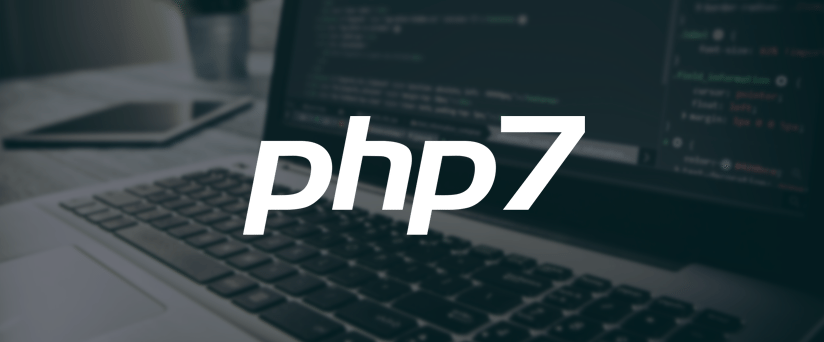
Ready For PHP 7? Here’s What You Need To Know
Largely thanks to the popularity of WordPress (which now powers 27 percent of the entire internet), PHP has become one of the most popular programming languages in the world. In fact, more than 80 percent of the web is powered by PHP, including popular websites like Facebook, Wikipedia, and of course, WordPress.com.
Released in 2015, the latest edition of PHP is version 7, which vastly outperforms its predecessors. Although PHP 7 was released more than a year ago, it’s a been a slow transition for the majority of the web. Ninety percent of sites on PHP are still only running version 5, and as of February 2017, only 6.6 percent of WordPress sites are on PHP 7.
If looking to learn more about this major release, including why it has been such a slow transition and how can you prepare your site, read on to find out more.
PHP 7: What You Need To Know
WordPress.com is currently running on PHP 7
As of late 2016, WordPress.com has been 100 percent switched over to PHP 7. Starting mid-2017, WordPress will officially recommend its users bump versions from 5.6 to 7.0, meaning PHP 7 could become the minimum requirement for running self-hosted WordPress in 2017.
PHP 7 vastly outperforms prior versions
By making the transition from PHP 5 to PHP 7, expect to see impressive performance improvements thanks to its new Zend Engine 3.0, including:
- 2-3x increased site speed
- 30-50% improvements in memory consumption
- Ability to serve up to 3x as many requests per second
PHP 6 was skipped
2004 introduced the PHP 5.x series, but how did we go from there to version 7? There was an attempt to release PHP 6 between 2005 to 2010, but that never took off the ground. While PHP 6 did exist at some point (there were even books written on how to use it) the project ultimately failed due to complex issues and was never officially released.
PHP 7 is not backwards compatible
Before moving to PHP 7, you should detect if there are any compatibility issues with your site because once you switch you cannot go back to older legacy systems. This is why making the move to PHP 7 is currently elective and not mandatory. If your site is not ready for PHP 7, issues could arise with incompatibilities in themes and plugins.
Want to see if your site is ready for PHP 7? There’s a plugin for that…
If you’re looking for serious performance gains, switching to PHP 7 is something you should consider. Upgrading your site to PHP 7 largely depends on compatibility with themes and plugins. This is why the transition has been so slow.
You can use the PHP Compatibility Checker plugin to detect what parts of your site are compatible with PHP 7 and which aren’t.
PHP 7 environments are now available at WP Engine
WP Engine is happy to announce we now support PHP 7 environments for our users. If looking to move to PHP 7, we recommend you use the PHP Compatibility Checker plugin first. That way you can to determine which (if any) plugins, themes, etc. are ready for PHP 7.
After you’ve determined that your site is ready to make the switch, you’re welcome to contact our support team through the Live Chat in your User Portal or via your Customer Success Manager to initiate the upgrade. (New customers can select PHP 7 from the get-go without having to contact support.)
For additional info and eligibility criteria, take a look at our PHP Support Center guide.
To learn more about PHP 7, check out this resource: Intro to PHP 7 for WordPress users.
Thanks for sharing the plugin.
great, thanks
Yes, have been using WordPress/php for some time now. Time to broaden the horizon. Thanks for sharing.
A debt of gratitude is in order for the news. The PHP Compatibility Checker module is extremely helpful, a debt of gratitude is in order for the connection.
Thanks Line25. Very Use Full Blog. Thanks For post bescuse this post is usefull me.
Thank You Admin For Sharing Helpful Information ….
Yup. Switching to php 7 is very easy. If you are using Cpanel, you basically just need to switch from your current php version to the latest 7.0 or newer 7.0.1 if not mistaken under Php configuration. However, I just go until 7.0 as I tend not to be very adventurous with the latest version. I believe 7.0 is stable and been in the development long enough. Goodcloudstorage.net is now on php7.0! yay
Only if you are on a shared server. Dedicated server’s cpanel does not give you an opportunity to switch your php. You have to as admin to do it for you. At least that is the way is at Hostgator. Uhg!
Thank you for sharing, Darcy.
I am running an e-commerce website, using WooCommerce & Sensei. Sensei Course Progress plugin error and not display.
I’m looking for the reason, hosting has not upgraded PHP 7?
Thanks for introducing the PHP Compatibility Checker plugin.
Thanks, I’m not technical and I could do it!
Thanks for the news and blog…..